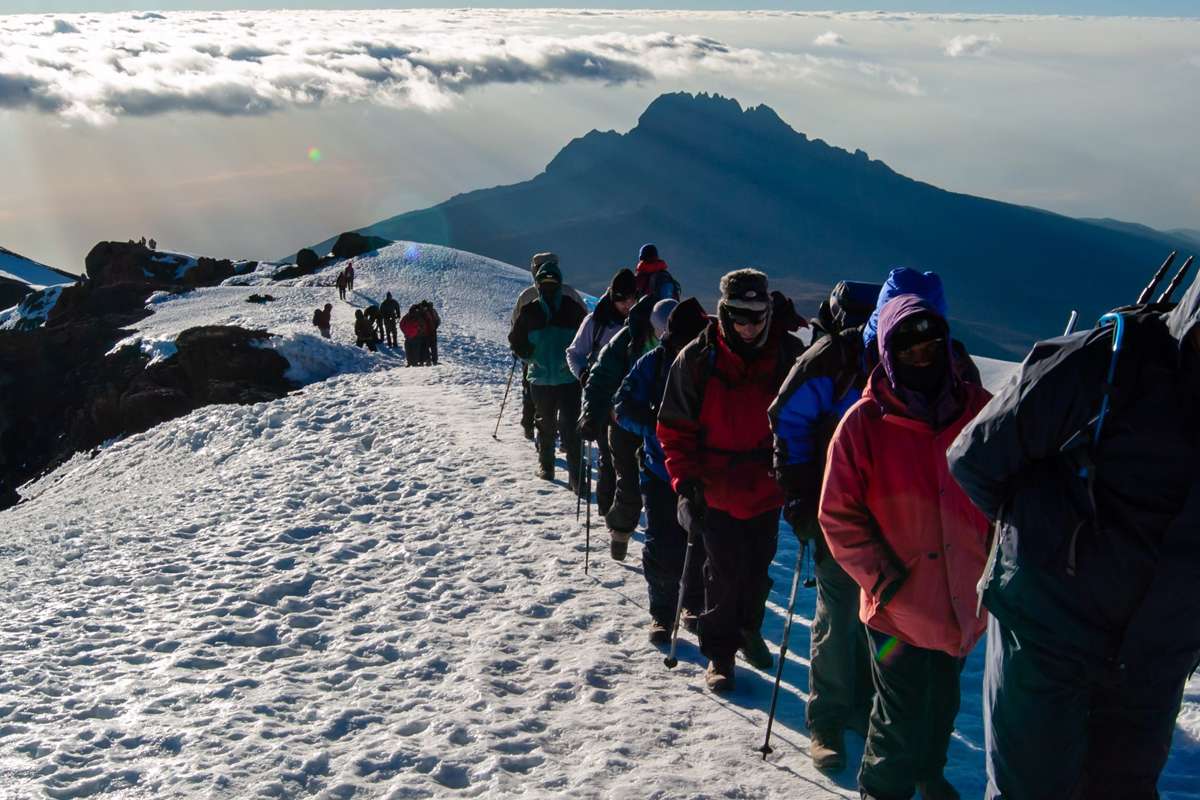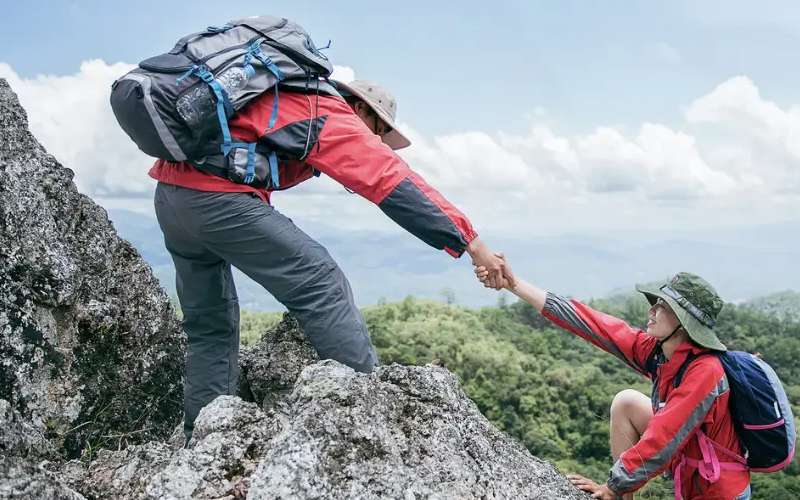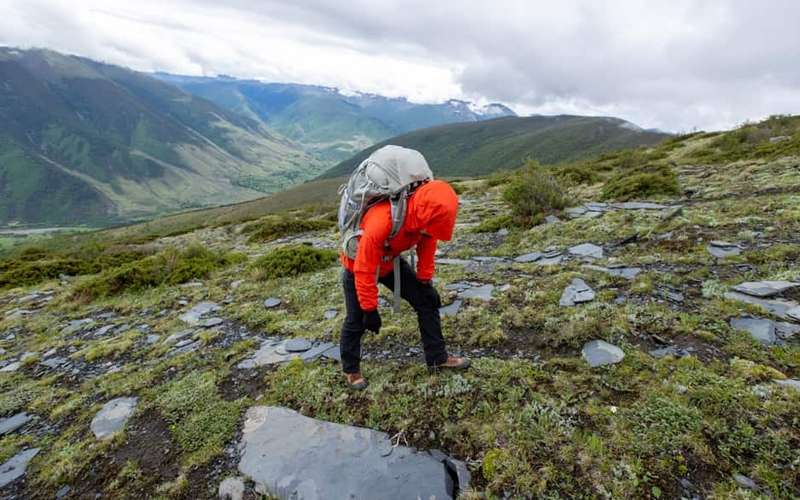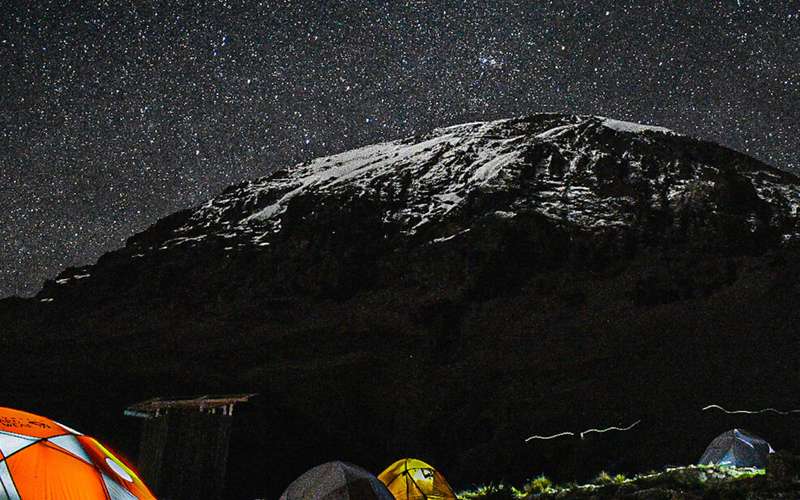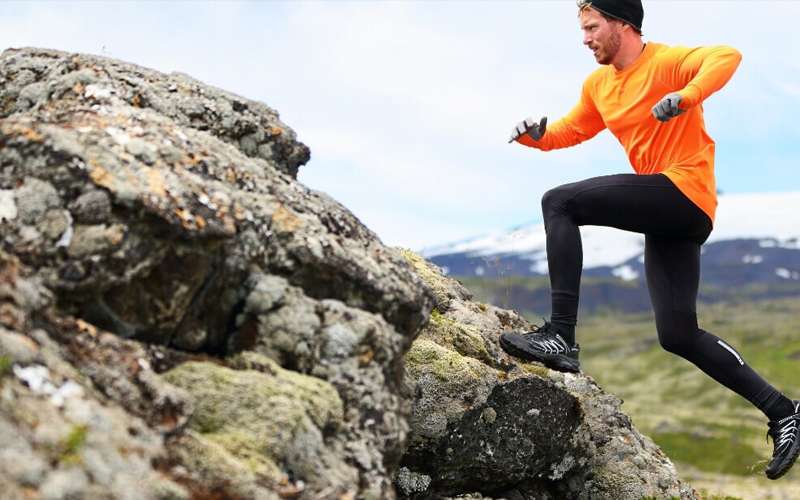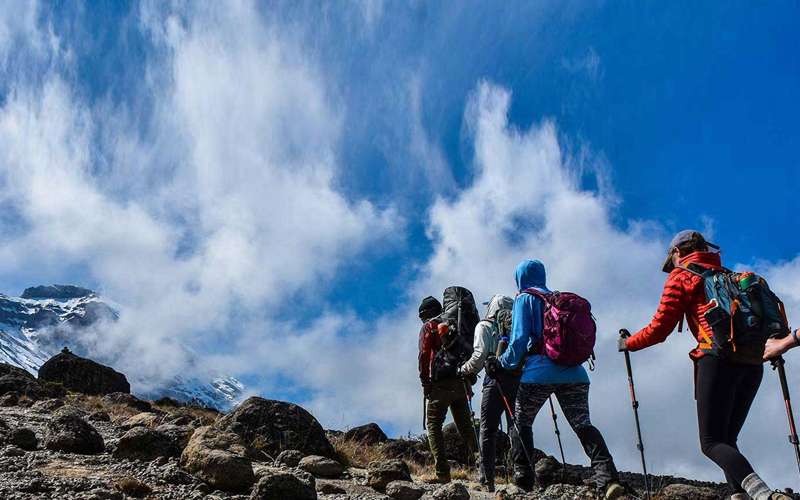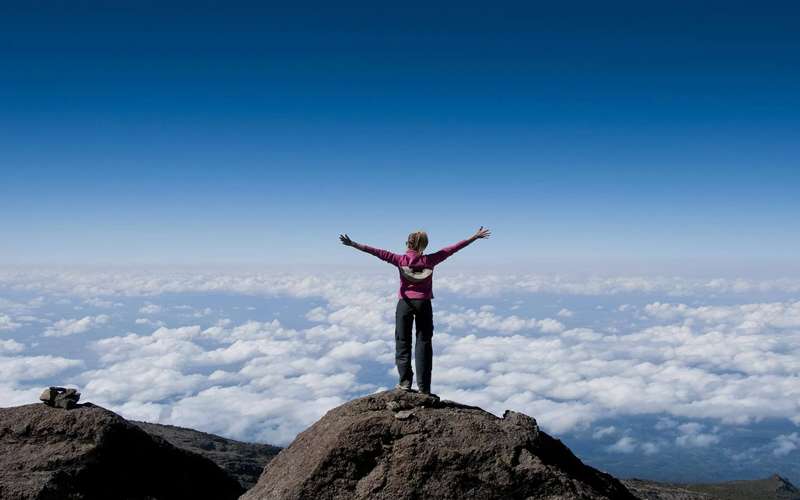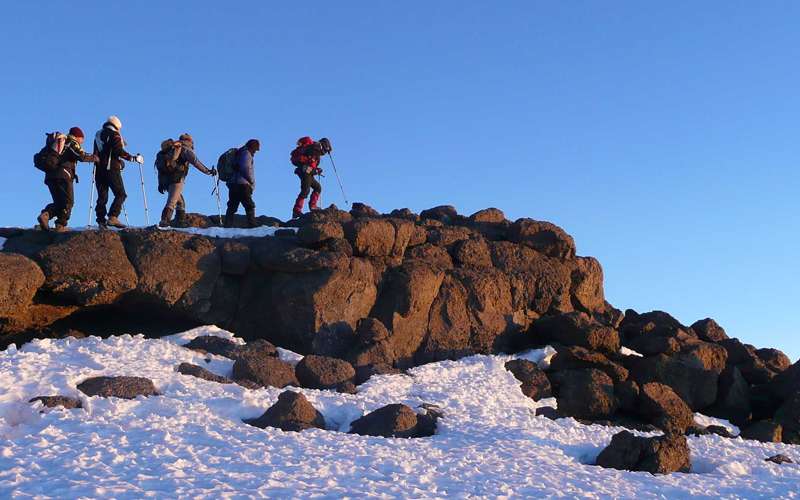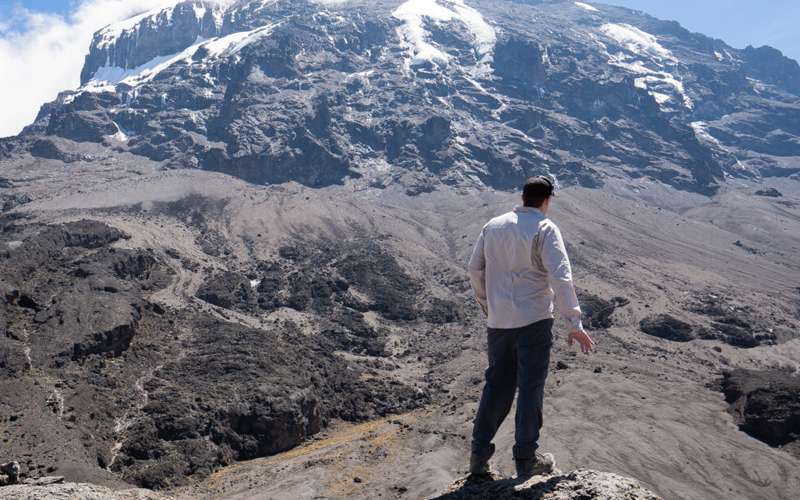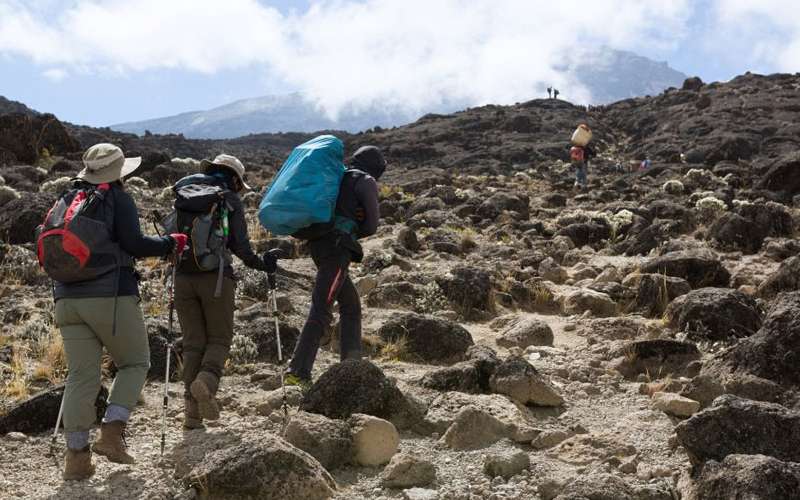Getting yourself mentally prepared for climbing Kilimanjaro is about getting your mind in the right place to tackle the challenges you’ll face during the climb. Here are some steps you can take to get yourself mentally ready.
Understand the Challenge:
Understanding the challenge of climbing Kilimanjaro means learning about what it takes to conquer this mountain. It’s not an easy feat—it involves reaching high altitudes and dealing with unpredictable weather conditions.
Kilimanjaro is the tallest peak in Africa, standing at over 19,000 feet (5,895 meters) above sea level. Climbing to such high altitudes presents unique challenges, including reduced oxygen levels and the risk of altitude sickness. Additionally, the weather on Kilimanjaro can change rapidly, with conditions ranging from hot and sunny to cold and snowy in a matter of hours.
By understanding these challenges, climbers can better prepare themselves both physically and mentally for the demands of the climb. This might involve training to improve endurance and altitude tolerance, as well as packing appropriate gear to stay safe and comfortable in changing weather conditions. Ultimately, being aware of the challenges of climbing Kilimanjaro is an important step in successfully reaching the summit.
Set Realistic Expectations:
Setting realistic expectations means understanding that climbing Kilimanjaro is going to be tough. By recognizing this, you can mentally prepare yourself for the challenges ahead.
Climbing Kilimanjaro is a physically demanding endeavor that requires endurance, strength, and resilience. The altitude, terrain, and weather conditions can all make the climb difficult and unpredictable. It’s important to acknowledge that not every moment will be easy and that there may be times when you feel tired, uncomfortable, or even discouraged.
By setting realistic expectations, you can avoid feeling disappointed or overwhelmed if things don’t go exactly as planned. Instead of expecting everything to be smooth sailing, you can anticipate that there will be obstacles to overcome along the way. This mindset can help you stay focused, motivated, and mentally prepared to tackle whatever challenges arise during the climb.
Ultimately, by knowing that climbing Kilimanjaro will be hard and accepting this reality, you can approach the experience with a positive attitude and a greater sense of determination.
Visualize Success:
Visualizing success means picturing yourself standing triumphantly at the summit of Kilimanjaro. By imagining this achievement, you can boost your confidence and motivation for the climb.
Close your eyes and visualize the moment when you reach the peak. Picture the breathtaking views stretching out before you, the sense of accomplishment filling your heart, and the pride in your achievement shining on your face. Imagine how it will feel to conquer such a formidable challenge and achieve your goal.
Visualizing success can help you stay focused and determined during the climb, especially when faced with obstacles or doubts along the way. By mentally rehearsing your success, you can build belief in your ability to reach the summit and overcome any challenges that arise.
So take some time to visualize yourself standing tall at the top of Kilimanjaro, and let that image fuel your motivation and drive as you prepare for the climb. With the power of visualization on your side, you’ll be one step closer to turning your dreams of success into reality
Train Physically:
Training physically for climbing Kilimanjaro isn’t just about getting your body in shape—it also helps strengthen your mind. Knowing that you’re physically prepared can ease your mind and boost your confidence for the climb.
When you train your body through exercises like hiking, cardio, and strength training, you’re also training your mind to handle the physical challenges of the climb. Each workout builds your strength, endurance, and resilience, making you better equipped to tackle the demanding terrain and altitude of Kilimanjaro.
As you push your physical limits during training, you’ll also develop mental toughness and determination. Overcoming obstacles in your workouts teaches you that you’re capable of pushing through discomfort and adversity, which can be invaluable during the climb.
Furthermore, the sense of accomplishment and progress you feel through physical training can help alleviate any doubts or fears you may have about the climb. Knowing that you’ve put in the work and are physically prepared can give you the confidence you need to face the challenges ahead.
So, while physical training is essential for preparing your body for the climb, it also plays a crucial role in strengthening your mind and boosting your confidence. By training both your body and mind, you’ll be well-prepared to take on the adventure of climbing Kilimanjaro.
Practice Resilience:
Practicing resilience means being prepared for setbacks or tough moments during the climb up Kilimanjaro. It’s about developing the ability to bounce back from challenges and keep pushing forward.
During the climb, you might encounter obstacles like bad weather, fatigue, or altitude sickness. These setbacks can be discouraging, but practicing resilience means facing them head-on and finding ways to overcome them.
One way to build resilience is by staying flexible and adaptable. If your original plan doesn’t work out due to unexpected circumstances, be open to adjusting your approach and finding alternative solutions.
It’s also important to maintain a positive mindset and focus on the things you can control. Instead of dwelling on setbacks, remind yourself of your strengths and past successes. Look for small victories along the way to help keep your morale high.
Finally, remember to lean on your support network for encouragement and guidance. Whether it’s your fellow climbers, guides, or loved ones back home, having a strong support system can provide the motivation and reassurance you need to keep going when the going gets tough.
By practicing resilience and staying determined in the face of adversity, you can overcome challenges and make it to the summit of Kilimanjaro.
Stay Positive:
Staying positive means keeping a hopeful outlook, even when faced with challenges during the climb up Kilimanjaro. It’s about focusing on the good moments and the progress you’re making, rather than dwelling on the difficulties.
Throughout the climb, there will be moments of awe-inspiring beauty, camaraderie with fellow climbers, and personal achievements to celebrate. By keeping a positive attitude and acknowledging these moments, you can maintain your motivation and morale.
One way to stay positive is by practicing gratitude. Take time each day to reflect on the things you’re thankful for, whether it’s the stunning scenery, the support of your fellow climbers, or simply the opportunity to embark on this adventure.
It’s also helpful to reframe challenges as opportunities for growth. Instead of seeing setbacks as failures, view them as valuable learning experiences that will make you stronger and more resilient in the long run.
Finally, surround yourself with positivity by seeking out supportive and uplifting people. Whether it’s your climbing team, guides, or loved ones back home, having a supportive network can help keep your spirits high, even when the climb gets tough.
By staying positive and focusing on the good moments and progress you’re making, you can maintain your motivation and resilience throughout the climb up Kilimanjaro.
Manage Stress:
Managing stress before and during the climb up Kilimanjaro is important for maintaining your physical and mental well-being. Here are some strategies to help you stay calm and composed:
1. Meditation:
Take time each day to practice mindfulness meditation. This involves focusing your attention on the present moment, which can help reduce stress and anxiety. Even just a few minutes of meditation each day can make a difference in your overall sense of calmness and resilience.
2. Deep Breathing:
Practice deep breathing exercises to help calm your mind and relax your body. Try inhaling deeply through your nose, holding your breath for a few seconds, and then exhaling slowly through your mouth. Deep breathing can help lower your heart rate and promote feelings of relaxation.
3. Relaxation Techniques:
Incorporate relaxation techniques into your daily routine, such as progressive muscle relaxation or visualization exercises. These techniques can help release tension from your body and calm your mind, making it easier to cope with stressors during the climb.
4. Take Breaks:
Remember to take regular breaks during the climb to rest and recharge. Use these moments to hydrate, refuel, and enjoy the scenery around you. Taking breaks can help prevent burnout and keep your energy levels up throughout the climb.
5. Stay Present:
Focus on the present moment rather than worrying about what lies ahead. Pay attention to your surroundings, the sensations in your body, and the rhythm of your breath. Staying present can help reduce feelings of stress and overwhelm.
By incorporating these stress management techniques into your preparation and during the climb, you can better cope with the challenges of climbing Kilimanjaro and enjoy the experience to the fullest.
Stay Flexible:
Staying flexible means being open to change and adapting when things don’t go as planned during the climb up Kilimanjaro. It’s about remaining mentally strong and resilient in the face of unexpected challenges.
Throughout the climb, there may be factors beyond your control, such as changes in weather, route alterations, or delays. By staying flexible and accepting these changes, you can better manage your expectations and emotions.
One way to stay flexible is to maintain a mindset of curiosity and openness. Instead of resisting change, approach it as an opportunity for growth and exploration. Stay curious about how you can adapt to new circumstances and overcome obstacles along the way.
It’s also important to let go of perfectionism and embrace the idea of “good enough.” Understand that things may not always go exactly according to plan, and that’s okay. Focus on doing your best in the moment and making the most of the situation.
Finally, be willing to ask for help and support when you need it. Whether it’s from your climbing team, guides, or support crew, reaching out for assistance can help lighten your load and make it easier to navigate challenges.
By staying flexible and adaptable, you can maintain your mental strength and resilience throughout the climb up Kilimanjaro. Embrace change as part of the adventure, and remember that it’s all part of the journey to reaching the summit.
Break it Down:
Breaking down the climb up Kilimanjaro into smaller, manageable steps can make the journey feel less overwhelming and more achievable. Instead of viewing it as one big challenge, focus on taking one step at a time.
Start by setting smaller, attainable goals for each day of the climb. This could include reaching a certain campsite, completing a specific portion of the trail, or simply making it through the day with a positive attitude. By breaking the climb into smaller segments, you can track your progress more easily and celebrate your accomplishments along the way.
During each leg of the climb, concentrate on the immediate task at hand rather than worrying about the entire journey ahead. Focus on putting one foot in front of the other, maintaining a steady pace, and staying hydrated and nourished. By staying present in the moment, you can conserve your energy and build momentum for the next step.
Remember to take breaks when needed to rest and recharge. Use these breaks to refuel your body, hydrate, and appreciate the stunning scenery around you. Taking moments to rest and reflect can help break up the climb into more manageable chunks and prevent burnout.
By breaking down the climb into smaller, achievable steps and focusing on one step at a time, you can maintain a positive mindset and stay motivated throughout the journey to the summit of Kilimanjaro.
Seek Support:
Seeking support from others can be incredibly helpful during the climb up Kilimanjaro. Surrounding yourself with supportive people who can encourage you along the way can make a big difference in your experience.
Your support system could include fellow climbers who share your goals and experiences, experienced guides who can offer advice and assistance, or loved ones back home who provide encouragement and moral support.
Having people to lean on during the climb can boost your morale, provide motivation when you’re feeling tired or discouraged, and offer practical assistance when needed. Whether it’s a word of encouragement, a helping hand, or simply someone to share the journey with, a strong support system can make the climb feel less daunting and more enjoyable.
Don’t be afraid to reach out to your support network when you need help or guidance. Whether you’re struggling with physical fatigue, emotional challenges, or simply feeling overwhelmed by the enormity of the climb, know that you’re not alone. Your support system is there to help you navigate the ups and downs of the journey and celebrate your achievements along the way.
By seeking support from others, you can make the climb up Kilimanjaro a truly memorable and rewarding experience.
By following these steps, you can mentally prepare yourself for the challenge of climbing Kilimanjaro. Remember, it’s not just about physical strength, but also mental resilience and determination. Explore Tanzania’s stunning national parks, from the iconic Serengeti, where you can witness the awe-inspiring wildlife migration, to the Ngorongoro Crater, a sanctuary for diverse wildlife. Don’t miss the chance to conquer Kilimanjaro, Africa’s highest peak, and soak in its breathtaking landscapes. Extend your adventure to the pristine beaches of Zanzibar, where turquoise waters and white sands await. Join us for an unforgettable Tanzania safari tour and experience the beauty and wonder of this remarkable country.


